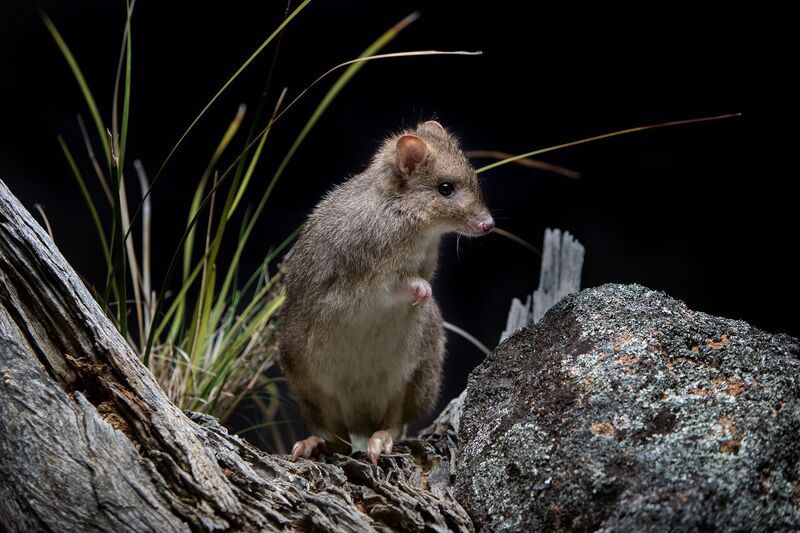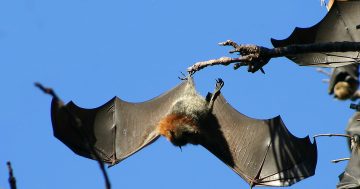
An eastern bettong.
Despite warnings foxes and feral cats would kill 30 rare eastern bettongs raised behind a protective fence if they were released into the wild, the ACT Government went ahead and released twice that number.
ACT Parks and Conservation director Daniel Iglesias said on Tuesday (19 March) that 67 bettongs (Bettongia gaimardi) had been taken by foxes in the Lower Cotter Catchment, west of Canberra. Rabbit-sized and known as a rat kangaroo, bettongs only survive in the wild in Tasmania.
Many of the females released into the bush near Canberra had offspring which would have perished too.
Introduced foxes, cats and clearing for agriculture made bettongs extinct on the mainland in the 1920s.
Re-introduced from Tasmania, the shy little marsupials were quietly taken from their predator-proof enclosure in the national capital and released at the end of 2016. At the time the ACT Government referred to only 30 bettongs in the trial. A pest expert likened the experiment to offering up the rare native animals as cat and dog food.
Mr Iglesias says one female lasted the longest in the wild – 18 months.
He said the ‘Holy Grail’ in Australian conservation was re-establishing endangered populations outside protective fences. Best practice was to do trials, and in previous trials the bettongs had lasted only four or five months.
He says the ACT experiment, a calculated risk, proves bettongs can live in the wild long enough to reproduce in the presence of foxes.
The trial showed adult bettongs can tolerate a degree of fox attacks. “Individuals will be taken by foxes, but overall the population can replace itself through breeding. That can happen with foxes in the environment at certain threshold levels that this trial has documented,” Mr Iglesias said.
“We can have bettongs outside the fence if we can keep foxes below a certain threshold. That to me is the exciting part of what has come out of this trial.’’
He says traditional fox control methods of shooting and baiting failed. “It doesn’t cut the mustard,” the parks chief said.
“We have to be more innovative in the way we control foxes, because the reward is almost within reach of a reintroduction. We have been able to demonstrate that these animals can exist with foxes in the environment,” he said.
The ANU Fenner School of Environment and Society would document the experiment and publish its findings and help, along with Centre for Invasive Species, and Woodlands and Wetlands Trust to investigate better methods of controlling foxes.
“The trial is finished,” Mr Iglesias said. “We are not going to continue with it, because we know what the situation is. [The results of the trials] would suggest there is no point putting any more bettongs out there.”
Thousands of 1080 poison (sodium fluoroacetate) baits were dropped over 8000 hectares from mid-2015 in preparation of the secret release. A dramatic decline of foxes ensured. But in the end, the foxes prevailed. The last signal from a bettong’s radio-radio-transmitter was heard early last year.
Mr Iglesias says the trial was ethical, and under the International Union for Conservation of Nature guidelines. He is satisfied it was transparent and open.
He said the trial’s outcome had not been made public earlier because researchers were yet to complete their analysis.
Do you believe bettongs should be protected or released into the wild?
Original Article published by John Thistleton on The RiotACT.









